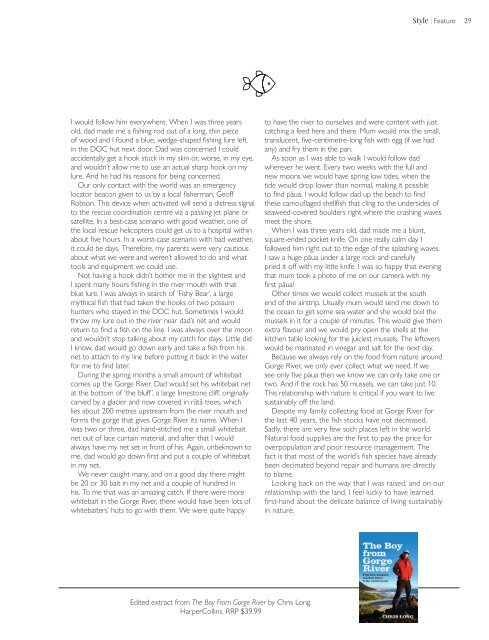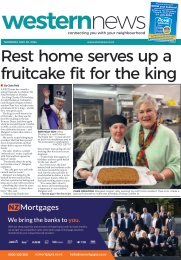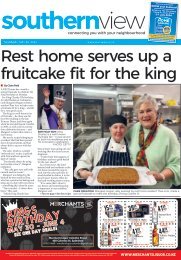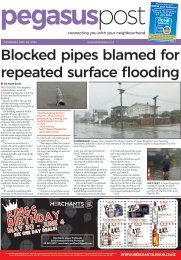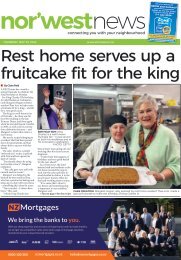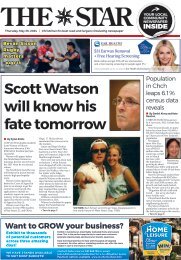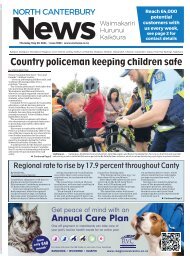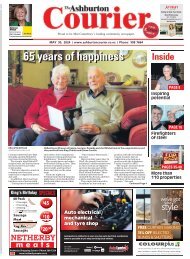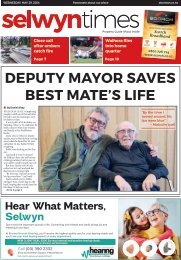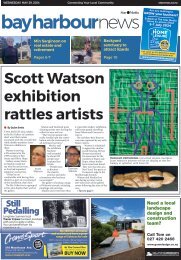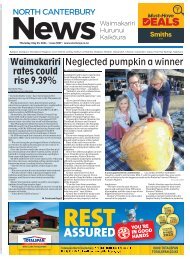Style: July 01, 2022
Create successful ePaper yourself
Turn your PDF publications into a flip-book with our unique Google optimized e-Paper software.
<strong>Style</strong> | Feature 29<br />
I would follow him everywhere. When I was three years<br />
old, dad made me a fishing rod out of a long, thin piece<br />
of wood and I found a blue, wedge-shaped fishing lure left<br />
in the DOC hut next door. Dad was concerned I could<br />
accidentally get a hook stuck in my skin or, worse, in my eye,<br />
and wouldn’t allow me to use an actual sharp hook on my<br />
lure. And he had his reasons for being concerned.<br />
Our only contact with the world was an emergency<br />
locator beacon given to us by a local fisherman, Geoff<br />
Robson. This device when activated will send a distress signal<br />
to the rescue coordination centre via a passing jet plane or<br />
satellite. In a best-case scenario with good weather, one of<br />
the local rescue helicopters could get us to a hospital within<br />
about five hours. In a worst-case scenario with bad weather,<br />
it could be days. Therefore, my parents were very cautious<br />
about what we were and weren’t allowed to do and what<br />
tools and equipment we could use.<br />
Not having a hook didn’t bother me in the slightest and<br />
I spent many hours fishing in the river mouth with that<br />
blue lure. I was always in search of ‘Fishy Bear’, a large<br />
mythical fish that had taken the hooks of two possum<br />
hunters who stayed in the DOC hut. Sometimes I would<br />
throw my lure out in the river near dad’s net and would<br />
return to find a fish on the line. I was always over the moon<br />
and wouldn’t stop talking about my catch for days. Little did<br />
I know, dad would go down early and take a fish from his<br />
net to attach to my line before putting it back in the water<br />
for me to find later.<br />
During the spring months a small amount of whitebait<br />
comes up the Gorge River. Dad would set his whitebait net<br />
at the bottom of ‘the bluff’, a large limestone cliff, originally<br />
carved by a glacier and now covered in rātā trees, which<br />
lies about 200 metres upstream from the river mouth and<br />
forms the gorge that gives Gorge River its name. When I<br />
was two or three, dad hand-stitched me a small whitebait<br />
net out of lace curtain material, and after that I would<br />
always have my net set in front of his. Again, unbeknown to<br />
me, dad would go down first and put a couple of whitebait<br />
in my net.<br />
We never caught many, and on a good day there might<br />
be 20 or 30 bait in my net and a couple of hundred in<br />
his. To me that was an amazing catch. If there were more<br />
whitebait in the Gorge River, there would have been lots of<br />
whitebaiters’ huts to go with them. We were quite happy<br />
to have the river to ourselves and were content with just<br />
catching a feed here and there. Mum would mix the small,<br />
translucent, five-centimetre-long fish with egg (if we had<br />
any) and fry them in the pan.<br />
As soon as I was able to walk I would follow dad<br />
wherever he went. Every two weeks with the full and<br />
new moons we would have spring low tides, when the<br />
tide would drop lower than normal, making it possible<br />
to find pāua. I would follow dad up the beach to find<br />
these camouflaged shellfish that cling to the undersides of<br />
seaweed-covered boulders right where the crashing waves<br />
meet the shore.<br />
When I was three years old, dad made me a blunt,<br />
square-ended pocket knife. On one really calm day I<br />
followed him right out to the edge of the splashing waves.<br />
I saw a huge pāua under a large rock and carefully<br />
pried it off with my little knife. I was so happy that evening<br />
that mum took a photo of me on our camera with my<br />
first pāua!<br />
Other times we would collect mussels at the south<br />
end of the airstrip. Usually mum would send me down to<br />
the ocean to get some sea water and she would boil the<br />
mussels in it for a couple of minutes. This would give them<br />
extra flavour and we would pry open the shells at the<br />
kitchen table looking for the juiciest mussels. The leftovers<br />
would be marinated in vinegar and salt for the next day.<br />
Because we always rely on the food from nature around<br />
Gorge River, we only ever collect what we need. If we<br />
see only five pāua then we know we can only take one or<br />
two. And if the rock has 50 mussels, we can take just 10.<br />
This relationship with nature is critical if you want to live<br />
sustainably off the land.<br />
Despite my family collecting food at Gorge River for<br />
the last 40 years, the fish stocks have not decreased.<br />
Sadly, there are very few such places left in the world.<br />
Natural food supplies are the first to pay the price for<br />
overpopulation and poor resource management. The<br />
fact is that most of the world’s fish species have already<br />
been decimated beyond repair and humans are directly<br />
to blame.<br />
Looking back on the way that I was raised, and on our<br />
relationship with the land, I feel lucky to have learned<br />
first-hand about the delicate balance of living sustainably<br />
in nature.<br />
Edited extract from The Boy From Gorge River by Chris Long.<br />
HarperCollins. RRP $39.99


